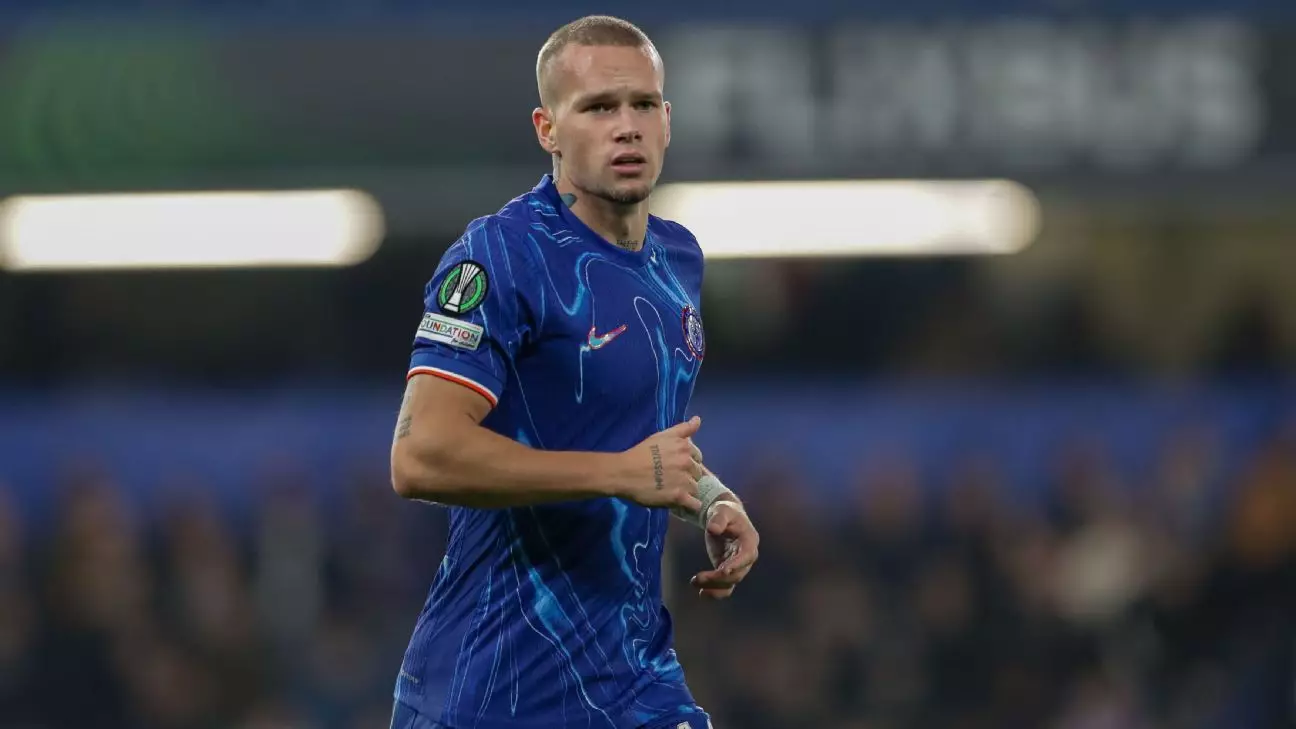The world of professional football is often marred by unexpected controversies and scandals, none more alarming than the recent announcement involving Chelsea’s winger, Mykhailo Mudryk. Known for his speed and agility on the pitch, Mudryk has recently found himself at the center of a serious issue, being notified by the Football Association (FA) about a positive drugs test. This news, which has reverberated around sports media and social networks alike, raises important questions regarding doping in sports, the integrity of athletes, and the potential consequences of such allegations.
Reports originating from Ukraine indicated that a prohibited substance was detected in Mudryk’s “A” sample collected in late October. While the testing of the “B” sample remains pending, the mere existence of a positive result places Mudryk in a precarious position. If the “B” sample concurs, he may face severe repercussions, including a lengthy suspension of up to four years, thereby jeopardizing his professional career and financial stability. Such a potential outcome underscores the importance of rigorous compliance among athletes regarding substance use.
Mudryk expressed his disbelief on social media, stating how shocked he was to learn about the results. He insisted that he has never knowingly ingested banned substances and is collaborating with his team to uncover how this situation arose. His response not only highlights personal distress but also emphasizes the often convoluted and opaque nature of doping in sports, where athletes can sometimes find themselves entangled in circumstances beyond their control.
Doping remains a pervasive issue within sporting environments, and high-profile cases like Mudryk’s serve as glaring reminders of the challenges faced in athlete integrity. Regulations set forth by organizations like the FA are designed to maintain fairness and protect the health of athletes. Still, it is essential to consider the emotional and psychological toll such allegations can exert on those implicated.
The stigma attached to a doping violation often overshadows athletes’ careers, with public opinion rapidly shifting to condemn, rather than understand. While Mudryk publicly maintains his innocence, the mere mention of a positive test can alter perceptions forever. The pressure on professional athletes to perform—sometimes leading to desperate measures—can create an environment where athletes unknowingly ingest prohibited substances, either through contaminated supplements or medications.
Chelsea FC has voiced its support for both Mudryk and the FA’s testing program, stating unequivocally that their players, including Mudryk, undergo regular testing. The club’s statement signifies an acknowledgment of the complexities surrounding doping regulations while also shifting some focus away from implied guilt towards institutional responsibility. Chelsea’s distinct stance may serve as an effort to preserve Mudryk’s reputation and maintain team morale during a tumultuous period.
As the situation develops, the club will collaborate with the relevant authorities to investigate the circumstances leading to the positive test. In sporting contexts, transparency in such investigations becomes crucial. A haphazard approach to doping allegations could deter fans and aspiring players alike from engaging with the sport, further highlighting the need for clear and balanced protocols to manage these complexities.
If the adverse finding is confirmed, Mudryk will face significant challenges—not only in terms of potential suspension but in regaining his place in a competitive Chelsea squad. Managers and clubs are known to reassess their teams significantly after such incidents. This scrutiny of athlete integrity can ultimately impact team dynamics, encouraging a stricter culture of accountability among players.
Yet, amidst the turmoil lies an opportunity for growth and education on anti-doping policies. Cases like Mudryk’s can galvanize wider discussions on drug use in sports, providing a platform for organizations alongside players to work collaboratively towards healthier environments. This dialogue could bring about reformative practices that emphasize awareness and education rather than purely punitive measures.
The complications stemming from Mykhailo Mudryk’s situation reflect larger systemic issues within professional sports regarding doping allegations. While the immediate aftermath focuses on his innocence and the investigation, it sheds light on the broader implications of drug use in modern athletics and the critical need for transparent practices moving forward. The world is watching, and how this situation unfolds may set a precedent for the future interactions between athletes, clubs, and governing bodies.


Leave a Reply